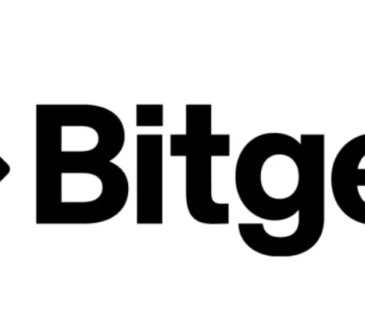The digital currency has surged from a niche interest to a major player in the global financial landscape, prompting discussions about its broader implications and the necessity for formal education in the field. As cryptocurrencies like Bitcoin become more ingrained in both commerce and investment, the question arises: Should universities offer courses on digital currency? This article delves into the evolving role of digital currencies, the current state of educational offerings, and the potential benefits and challenges of integrating such courses into university curriculums.
The Evolution of Digital Currency
Digital currencies, particularly cryptocurrencies, have dramatically transformed the economic landscape since Bitcoin’s inception in 2009. These digital assets are powered by blockchain technology, a decentralized ledger that ensures transparency and security in transactions. Over the years, the applications of digital currencies have expanded beyond mere transactional tools to complex financial instruments involved in lending, borrowing, and asset management.
The academic interest in digital currencies has similarly grown, prompting educators and institutions to consider their place in a comprehensive university curriculum. For instance, as detailed by an analysis from WritePaper, an essay writing service specializing in academic trends, the number of published research papers on blockchain and cryptocurrency has increased tenfold over the past five years, signaling a growing scholarly interest that necessitates formal educational programs. This surge in academic attention reflects a need to understand not only the technological underpinnings of digital currencies but also their economic, legal, and societal implications.
Current Educational Offerings
Across the globe, a number of leading universities have begun to respond to the burgeoning interest in digital currencies by integrating related courses into their curriculums. These offerings range from introductory courses on blockchain technology to advanced seminars on the economic impact of cryptocurrencies. For example, MIT and Stanford offer comprehensive programs that cover both the theoretical and practical aspects of blockchain and digital currencies, aiming to equip students with the skills needed to navigate this complex field.
Moreover, these courses are not limited to departments of finance or computer science. Interdisciplinary courses are emerging that address the legal, business, and ethical considerations of digital currencies, reflecting the multifaceted impact of these technologies. The variety and depth of these courses underscore the recognition of digital currency’s significant role in future economic systems and the necessity for a well-rounded educational approach to prepare students for the challenges and opportunities that lie ahead.
Market Demand for Digital Currency Skills
The job market’s demand for expertise in digital currencies and blockchain technology has witnessed an exponential increase. According to industry reports, job postings related to blockchain and cryptocurrency have surged by over 600% in the last few years. This growth is not confined to tech companies; financial institutions, government agencies, and even non-profits are seeking individuals who understand the complexities of digital currencies and the underlying technology.
Salaries in this sector are also indicative of the high demand, with blockchain developers and cryptocurrency analysts commanding premium remunerations well above the average for comparable positions in other fields. The market’s burgeoning demand reflects a broader trend toward digitization and automation in financial services and highlights the need for educational programs that can produce graduates equipped with the necessary skills to navigate this new landscape.
Educational Benefits of Offering Digital Currency Courses
Integrating digital currency courses into university curriculums could provide substantial benefits to students. Firstly, such courses offer a solid foundation in a technology that is likely to play a critical role in the future of global commerce. Understanding the mechanics of blockchain technology, smart contracts, and digital tokens will provide students with a competitive edge in the job market.
Moreover, the interdisciplinary nature of digital currency studies could enhance a student’s educational experience by integrating concepts from technology, law, finance, and ethics. For example, students can explore the ethical implications of blockchain technology, such as privacy concerns and its potential to reduce corruption through transparency. This broad approach not only enriches students’ learning experiences but also prepares them to think critically about the multifaceted challenges they will face in a digital economy.
Challenges and Controversies
Despite the apparent benefits, incorporating digital currency courses into university curriculums is not without challenges. The primary concern is the rapid pace at which the underlying technology evolves. Course materials can quickly become outdated, making it difficult for educational institutions to keep curriculums current without continual investment in updates and faculty training.
Regulatory uncertainties also pose a significant challenge. The legal landscape surrounding digital currencies is still in flux, with significant variations between jurisdictions. This can complicate the teaching of digital currency courses, as educators must navigate an ever-changing regulatory framework that can differ vastly from one region to another.
Additionally, digital currencies are often associated with controversies, such as their use for illegal activities and their significant environmental impact due to the energy consumption of mining operations. These issues present ethical dilemmas and complicate the discourse around digital currencies, requiring a nuanced approach to teaching that can address these complex issues comprehensively.
Conclusion
The question of whether universities should offer courses on digital currency taps into broader discussions about the role of higher education in preparing students for future challenges. As digital currencies become increasingly integrated into the global financial system, the need for knowledgeable professionals who understand this field will only grow. Offering courses on digital currency can provide students with valuable skills and insights, preparing them for careers in a rapidly evolving sector.
Furthermore, these courses can help foster a more informed and ethical approach to the development and use of blockchain technologies. By addressing both the technological and ethical dimensions of digital currencies, universities can play a pivotal role in shaping the future of this field. As such, it is not only advisable but perhaps imperative for educational institutions to include digital currency studies in their offerings, thereby ensuring their students are well-equipped to succeed in the digital age.






